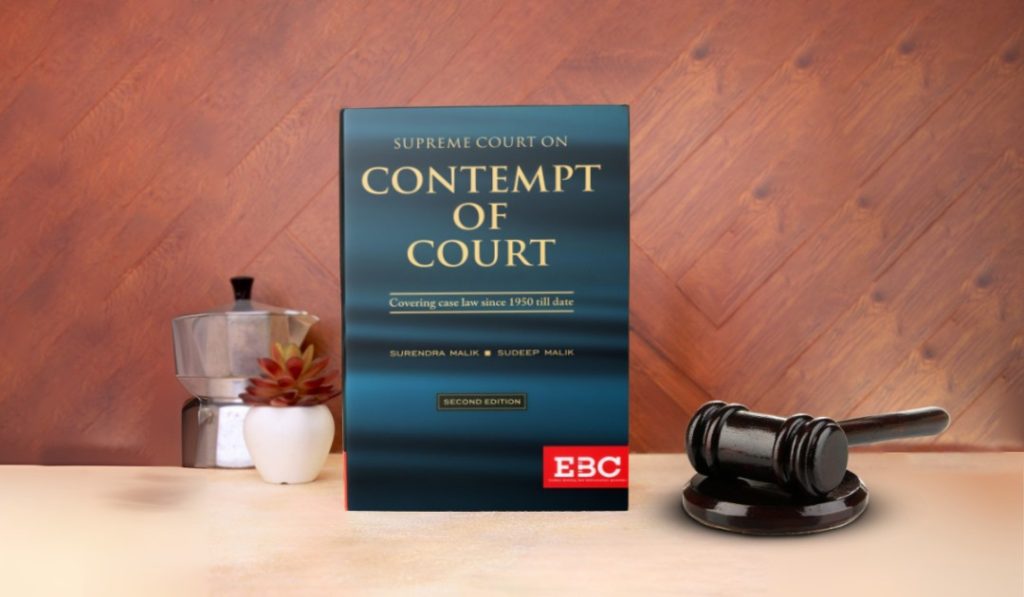
The judiciary is the guardian of justice and plays a vital role in maintaining law and order in society. However, to ensure that the authority of courts is respected, there must be a mechanism to prevent acts that undermine their dignity. This is where the concept of Contempt of Court comes in. In India, contempt laws are designed to protect the integrity of the judiciary, ensure compliance with court orders, and preserve public confidence in the justice system.
Meaning of Contempt of Court
Contempt of court refers to any act that disrespects the authority of a court, disobeys its orders, or obstructs the administration of justice.
In India, the Contempt of Courts Act, 1971 defines and regulates this concept. Additionally, the Constitution under Article 129 empowers the Supreme Court and Article 215 empowers the High Courts to punish individuals for contempt.
Types of Contempt of Court
The Contempt of Courts Act, 1971 categorizes contempt into two main types:
1. Civil Contempt
Civil contempt occurs when a person wilfully disobeys any judgment, order, decree, direction, writ, or undertaking given to a court.
- Example: If a person refuses to comply with a High Court order directing them to release payment, it qualifies as civil contempt.
- Objective: It is remedial in nature and aims to ensure compliance rather than punish the offender.
2. Criminal Contempt
Criminal contempt refers to actions that:
- Scandalise or lower the authority of the court
- Interfere with judicial proceedings
- Obstruct the administration of justice
- Example: Publishing false statements against judges, shouting in court, or creating deliberate disruptions during hearings.
- Objective: It is punitive and seeks to uphold the dignity and reputation of the judiciary.
Quick Comparison: Civil vs. Criminal Contempt
| Aspect | Civil Contempt | Criminal Contempt |
| Definition | Wilful disobedience of court orders | Actions that disrespect or obstruct the court |
| Purpose | To enforce compliance | To protect judicial dignity |
| Nature | Remedial | Punitive |
| Examples | Disobeying orders, not following judgments | Publishing false allegations, disrupting proceedings |
Relevant Laws Governing Contempt in India
The primary legislation dealing with contempt is the Contempt of Courts Act, 1971, supported by constitutional provisions. Here are the key highlights:
- Article 129 → Grants the Supreme Court power to punish for contempt.
- Article 215 → Empowers High Courts to deal with contempt cases.
- Section 2 → Defines civil and criminal contempt.
- Section 12 → Specifies punishments for contempt.
- Section 13 → States that truth can be a valid defense if it is made in public interest and bona fide.
Punishments for Contempt of Court
According to Section 12 of the Contempt of Courts Act, 1971:
- Imprisonment → Up to 6 months
- Fine → Up to ₹2,000
- Both → In serious cases, both penalties can be imposed.
However, the courts often prefer accepting an apology if it appears genuine and made in good faith.
Balancing Judicial Dignity and Free Speech
While protecting judicial authority is essential, the law also ensures that freedom of speech is not compromised. Therefore:
- Fair and accurate reporting of court proceedings is allowed.
- Genuine criticism of judgments, when done in good faith, is not considered contempt.
- Innocent publication of information without knowledge of ongoing proceedings is exempt.
Contempt of court is not meant to silence citizens but to maintain the sanctity of the judicial process. It ensures that:
- Court orders are respected
- Judicial authority is preserved
- Justice is delivered without obstruction
In essence, civil contempt enforces compliance, while criminal contempt safeguards the dignity of the judiciary. Striking the right balance between judicial power and freedom of expression is vital for a healthy democracy.
If you wish to explore this subject in greater detail, this book authored by Surendra Malik and Sudeep Malik is highly recommended.
















